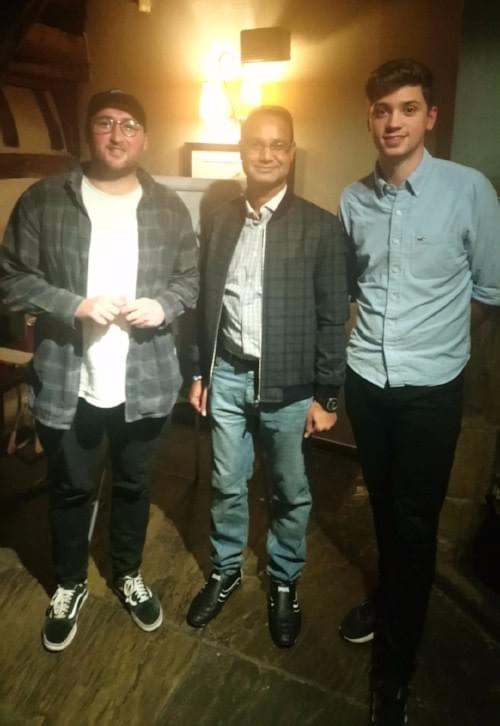The clocks have gone back and the nights are getting cold and dark – but do not fear(!), as PubhD is still here to keep you company as the winter nights draw in =D Not only that, but PubhD Sheffield is now officially a year old (YAY!). So to celebrate, we brought cake and cookies down to treat our audience.
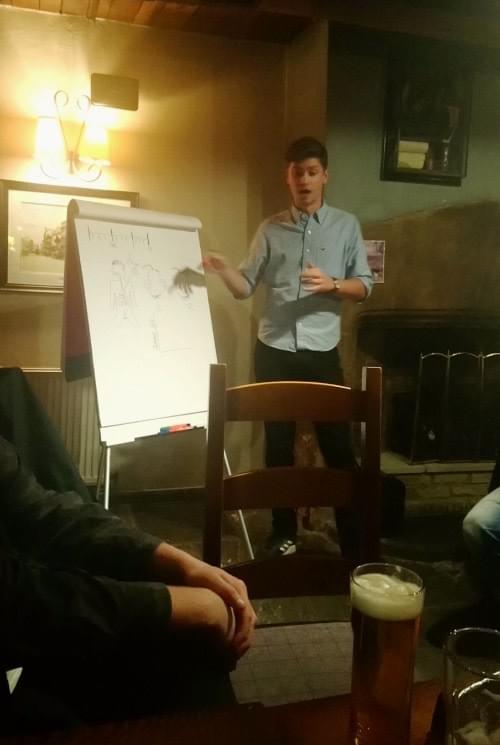
The first speaker of the night was Jack Paveley, a second year PhD student in Biomedical Sciences at the University of Sheffield. Jack actually came and told us about an interesting project he had been part of for his Masters degree, which looked into the link between cancer and the gut microbiota! The natural human microbiota is made up of bacteria, viruses and fungi, and they live quite happily alongside us, without making us ill. Jack described that there are approximately 10 trillion human cells in the body, but 100 trillion bacterial cells - so you can imagine just how important they must be! They are already considered to have a protective role in helping the immune system and also aid digestion in the gut. Jack described how his research used mice to consider the links between cancer and the microbiota. He used two groups: A strong antibiotic cocktail treated group, that killed significant amounts of bacteria in the gut, and the ‘control’ group which had no antibiotic treatment, but sterile water. He demonstrated that the antibiotic treated mice had tumours double in size compared to control mice after just 14 days. A subsequent experiment used a clinically-relevant antibiotic used during treatment of breast cancers. This caused a similar response by increasing the size of the tumour by almost 50%. Jack described how other studies have continued to elucidate this phenomenon, and he briefly spoke about the idea of manipulating the microbiota to treat disease. He described how 4th century doctors used a ‘yellow soup’ (blend of faeces from healthy people) as medicine to treat the ill. The methods today aren’t quite as grim, but he described how faecal transplants were used to treat a major outbreak of the C. difficile infection in the US in 2013. In this instance, the bacteria were extracted from healthy donors and transplanted into infected patients through an enema. Jack finished by asking how the audience felt about this as a future treatment and its future potential. I think you can probably guess their response…
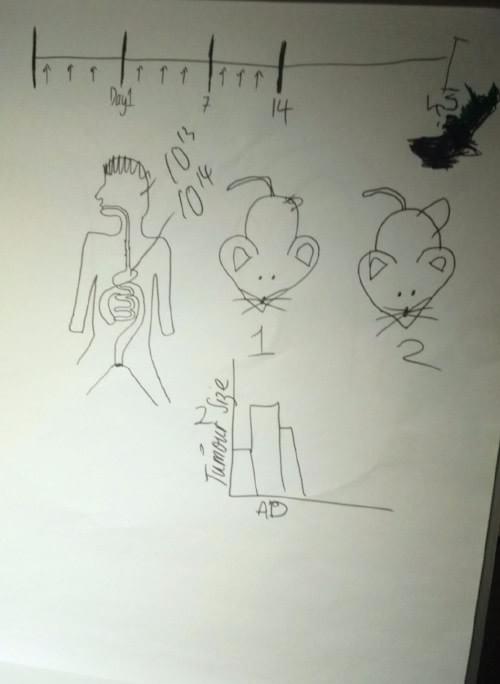
After a quick cake break, our second speaker of the night was Ben Ward, a third year PhD student in the Department of Infection, Immunity and Cardiovascular Disease at the University of Sheffield. Ben’s work provides insight into heart disease – which is still the biggest killer worldwide today. He started by discussing how the Greek dissection of the word ‘atherosclerosis’ is ‘hard porridge’ – which he thought summed up the appearance of plaques in arteries quite well. Ben described that blood usually flows quite efficiently in our vasculature, however, when vessels branch or bend, this creates disrupted flow. At these sites, he explained that hot spots occur, where fatty components and immune cells in the blood begin to stick. One of the most studied immune cell in atherosclerosis is the monocyte, but there is already a lot known about their roles and presence in this disease. Ben, instead, is interested in the neutrophil – the most abundant immune cell in the body and the one that is always the first to your defence (e.g. if you cut your finger they’ll be straight there to help!). These neutrophils are capable of producing ‘microvesicles’ – little ‘mini-me’ versions of the cell – that do not usually contain any major cell organs or machinery. These tiny bubble-like structures were first noted in the 1960s, when scientists mistakenly thought they were ‘platelet dust’, but they have been increasingly studied over the last decade and are shown to be amplified during atherosclerosis and heart disease. Ben explained that he had collaborated with a group in Loughborough to investigate what happened to microvesicle levels in humans who were ask to go on a high fat diet for seven days. Want an idea of what a high fat diet is? Well it has a breakfast consisting of 7 rashers of bacon, 3 slices of fried bread, 3 sausages and much, much more! As expected, they saw elevated levels of ‘mini-me’s’, suggesting they may have a much more important role than first thought. Ben’s research has looked into characterising them and challenging their roles during atherosclerosis plaque formation.
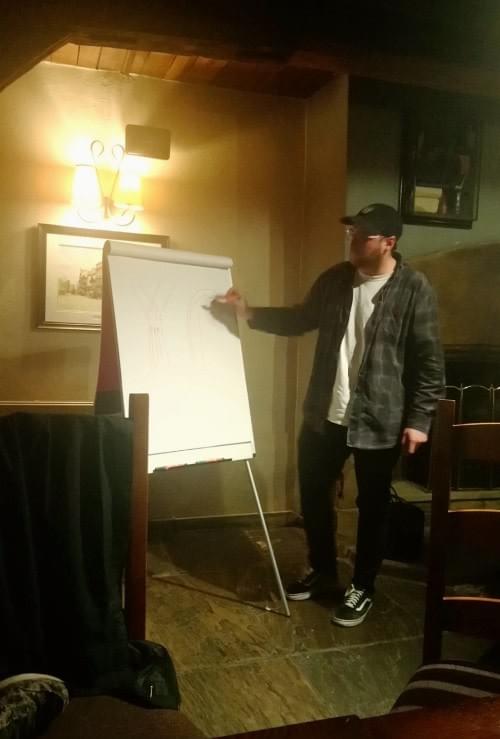
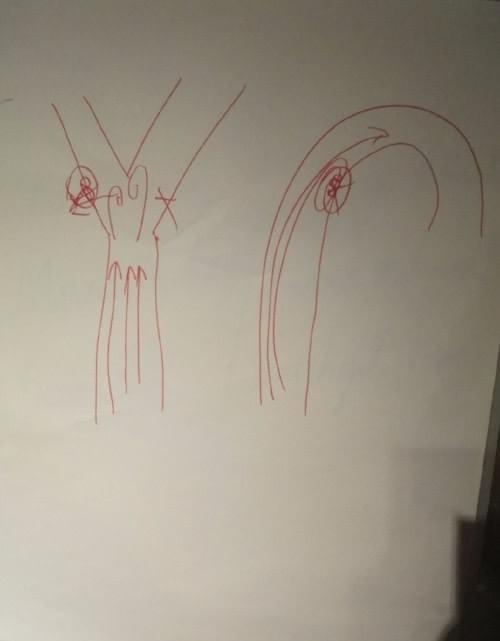
Our final speaker of the night was Sadiq Bhanbhro, a second year PhD student and research fellow at Faculty of Health and wellbeing Sheffield Hallam University. He began by describing how the first two speakers had spoke of natural or biological causes of death and how his research looks into a more human cause, but that he also aims to save lives with his findings: Sadiq researches the community notions of honour and their relation to honour killings of women and girls and honour violence. He first described how this is currently happening all across the world and how honour is perceived in different countries and cultures. He described that honour has been a central concept across societies throughout history, as it has been attributed as an underlying reason for horrible types of violence, for example, duelling in England, foot binding in China and wife burning (sati) in India. Sadiq described how he is working in the UK and Pakistan to understand the notion of honour, community understanding of honour and its enforcement through violence community. Last year alone, nearly 1100 women and 78 men were reported as victims of honour killings in Pakistan, although Sadiq estimates the numbers are much higher when you consider the unreported cases. Within this research area, he found 2200 different research papers on the topic, but with only 67 involving primary studies and the rest just reviews of the field. Of these 67 papers, 98% were studies both written by and surveying women. There are no current studies published asking community members, where it is believed that honour killings occur, what drives them to take such heinous action and kill their loved ones. This is where Sadiq wishes to make a change. He is meeting with and interviewing men in these communities, to ask what honour means to them and their reasons behind such vicious acts of violence. So far he has found that many people blame their culture, community or society, and the biggest problem he currently faces is finding a suitable intervention – it’s not that easy to change a community’s mind-set! He explains that some people brandish this as a problem exclusive to religious groups, but actually this is happening across the world. He ends the night by prompting a great discussion with the audience, about how people have issues recording honour killings simply as ‘murders’ – even inside the research field – and how language and media portrayal of such events may not be helping the current problem.
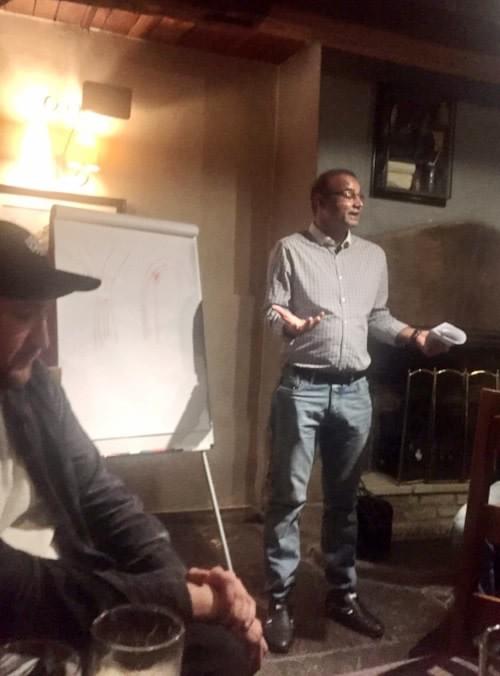
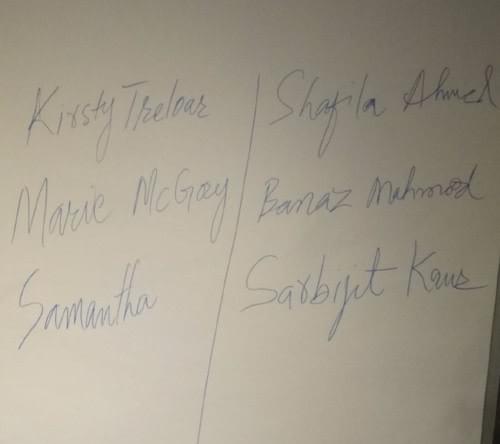
We would like to say another big thank you to our three speakers, and also to our HUGE audience! It was a pleasure to see so many of you down, and great to have so many questions and discussion points throughout the night. We look forward to seeing you all again at our December/Xmas event, on Weds 6th December from 7pm.
Devon and Emily =D
